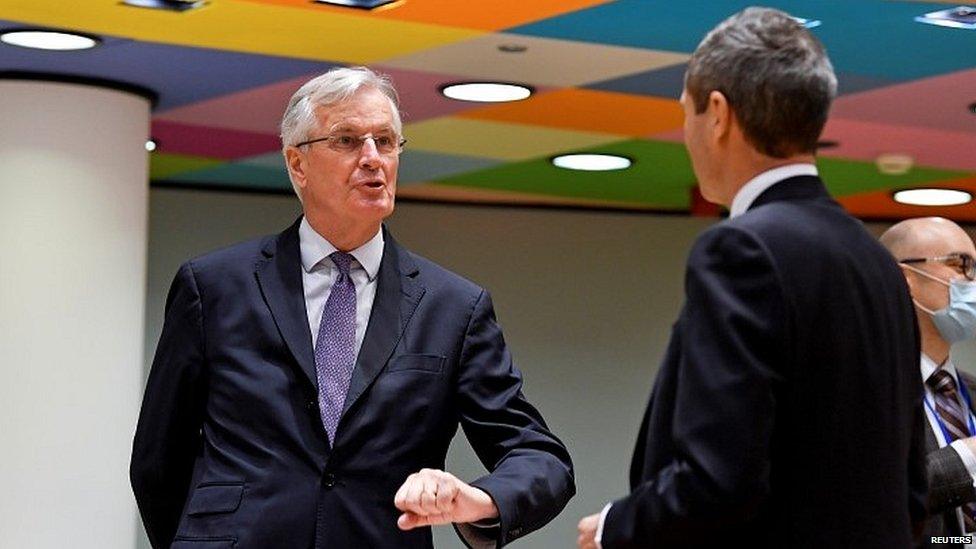EU and UK in 'final push' for post-Brexit trade deal
- Published
- comments

The EU and UK are making a "final push" for a post-Brexit trade deal, EU chief negotiator Michel Barnier has said.
But he told diplomats from the bloc's 27 member states there was little time left to reach agreement before the 31 December deadline.
The UK will leave the EU trading rules at that point.
Talks have been taking place round the clock to try to settle differences over fishing, competition rules and how future disputes will be resolved.
If there is no trade deal by 31 December, both sides could place import taxes on each other's goods, potentially affecting prices.
Speaking in Brussels, where the talks are happening, Mr Barnier said: "We are really in a crucial moment and we are giving it a final push. In 10 days, the UK will leave the single market."
One EU diplomat told the BBC Mr Barnier had said that, while most issues had been agreed or were close to being settled, differences on fishing access and quotas "remain difficult to bridge".
He said the EU thought the UK was "not moving enough yet to clinch a fair deal on fisheries".

The basics
Brexit happened but rules didn't change at once: The UK left the European Union on 31 January 2020, but leaders needed time to negotiate a deal for life afterwards - they got 11 months.
Talks are happening: The UK and the EU have until 31 December 2020 to agree a trade deal as well as other things, such as fishing rights.
If there is no deal: Border checks and taxes will be introduced for goods travelling between the UK and the EU. But deal or no deal, we will still see changes.

While progress on other issues has been made in recent days, there has been little sign of a breakthrough on fish.
The UK insists that, as a sovereign state, it must have control of its waters from 1 January and retain a larger share of the catch from them than it does under the current quota system.
The EU wants to phase in a new system over a much longer period and retain significant access to UK waters for boats from France, Spain and other countries with large fleets.
Downing Street sources said Boris Johnson was in "close contact" with European President Commission Ursula von der Leyen and the pair were "speaking from time to time".
But, on Monday, the prime minister said the state of the talks remained "unchanged" and there were still "problems".
EU diplomats have suggested the bloc would be willing to continue negotiations beyond 1 January if necessary.
Mr Johnson suggested the UK would "prosper mightily", whatever the outcome of the talks.